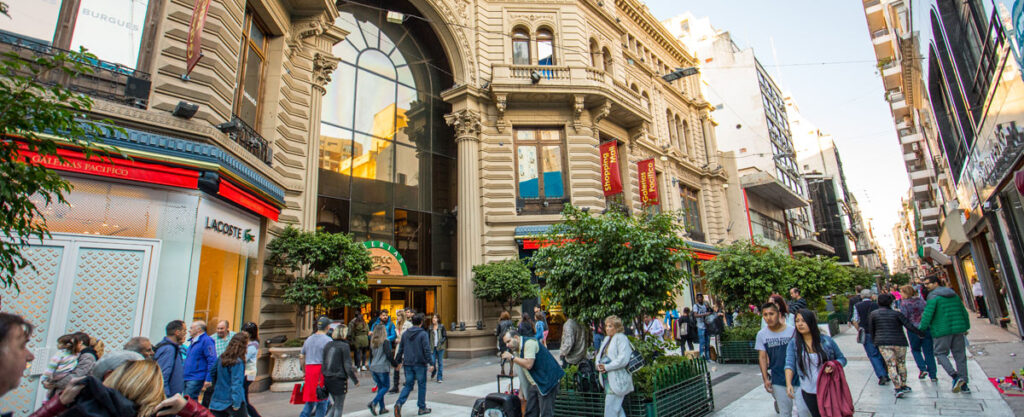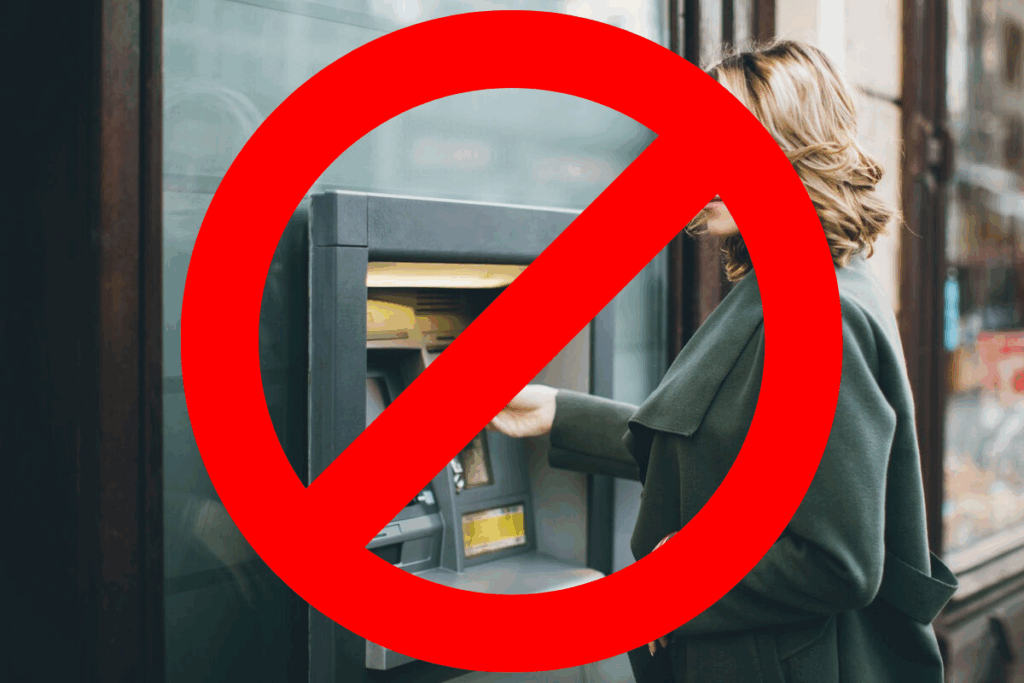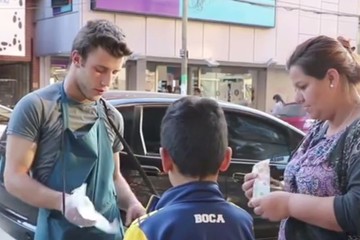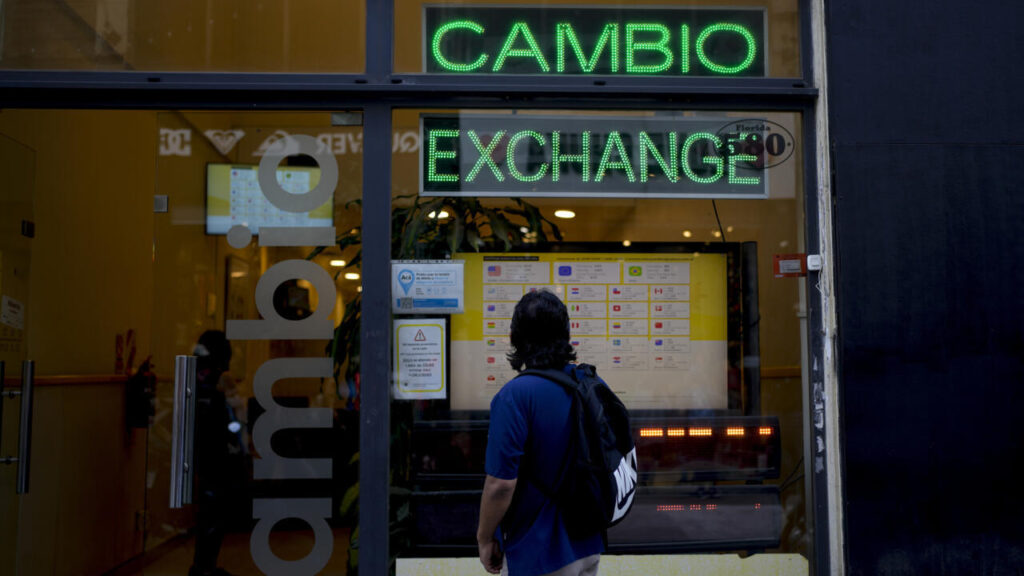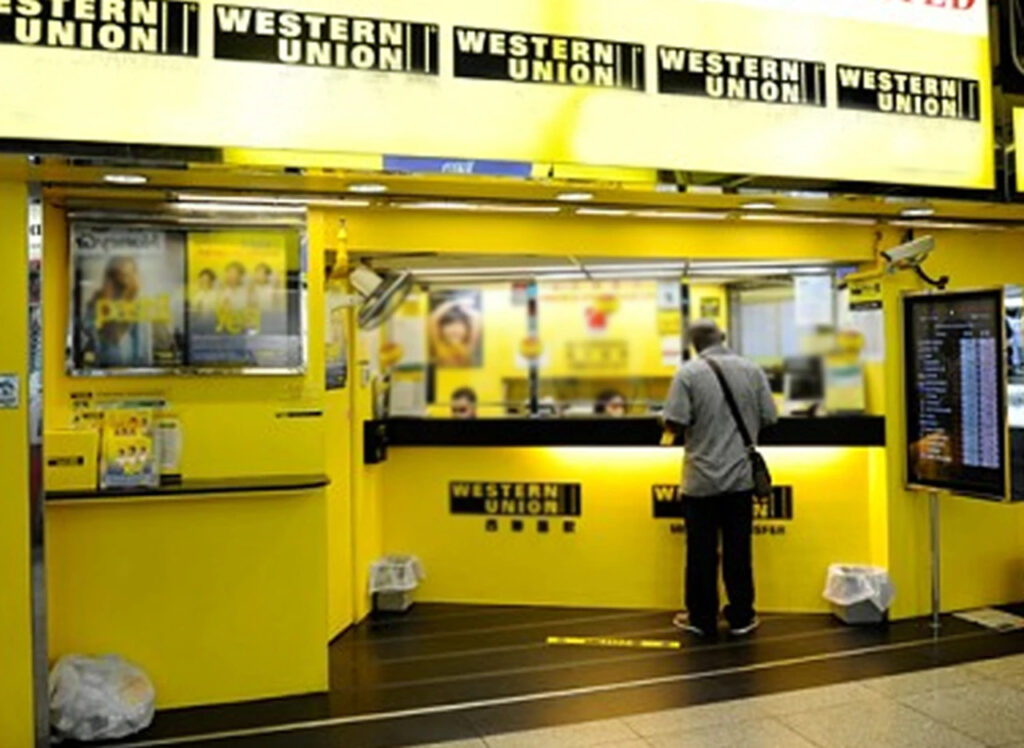Navigating Currency in Argentina: A Guide for Students Abroad
One of the trickiest aspects of traveling to a new country is understanding its currency. As a student studying abroad in Buenos Aires with foreign currency, you’re in a favorable position to make the most of your money. This practical guide, updated for April 2025, explains how to manage your currency effectively during your time in Argentina.
How is the Economic Situation in Argentina?
Argentina’s economy remains challenging but has shown signs of stabilization. Under President Javier Milei’s reforms since December 2023, annual inflation has dropped from over 200% in 2023 to approximately 117.8% by late 2024, with monthly rates stabilizing at 2.7–4%. While still high, this marks significant progress. The Argentine peso continues to lose value, making it difficult for locals earning in pesos to save or plan for the future. However, for travelers with foreign currencies like US dollars or euros, this creates favorable exchange rates, as Argentines often seek these currencies to protect their savings or make major purchases, such as property.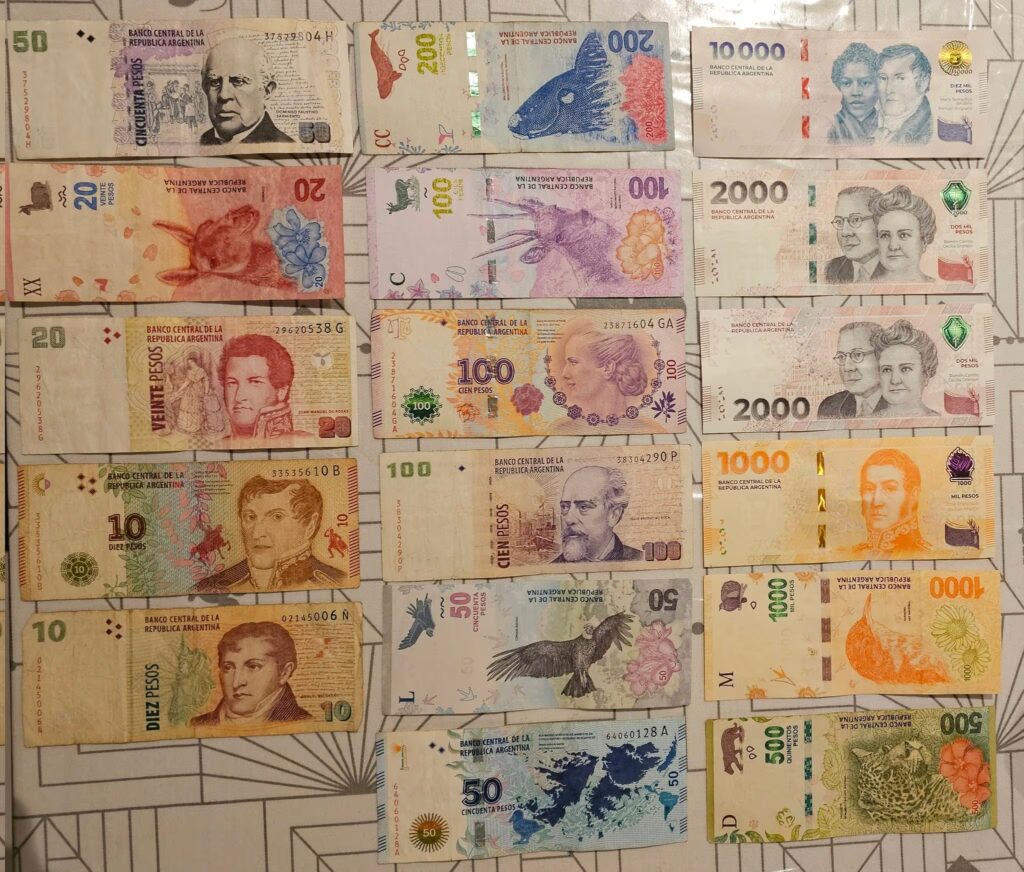
Argentina operates with two exchange rates: the “official” rate, published on the Bank of Argentina website, and the “blue” rate (dólar blue), an informal rate approximated on sites like DolarHoy. Recent reforms have narrowed the gap between these rates, but the blue rate may still offer slightly better value for cash exchanges.
Is Buenos Aires Expensive?
For those earning in pesos, Buenos Aires is costly due to persistent inflation. However, if you’re using a strong foreign currency, you’ll find many expenses—such as groceries, dining out, laundry services, and local transportation—relatively affordable. Imported goods, like electronics and branded clothing, are expensive due to high taxes. For example, a meal at a local restaurant may cost significantly less than in the US or Europe, but a new smartphone could be pricier.
Can I Withdraw Other Currencies from an ATM in Argentina?
No, ATMs in Argentina dispense only Argentine pesos, just as ATMs in most countries don’t provide foreign currencies. Before traveling, check with your bank about international withdrawal fees, as these can be steep. ATMs in Argentina often charge high fees and apply the official exchange rate, which is less favorable than the blue rate. Limit ATM use and consider cash exchanges or money transfer services for better value.
Can I Use My Foreign Debit or Credit Card in Argentina?
Yes, foreign debit and credit cards are widely accepted in Buenos Aires at restaurants, shops, supermarkets, and hotels. However, using them may not always be the best choice. Card transactions typically use the official exchange rate, which, despite recent improvements, may yield fewer pesos than exchanging cash at the blue rate. For small purchases—like a coffee, a quick lunch, or a rideshare—cards are convenient if you’re short on cash. Some businesses may add a surcharge for card payments, so ask beforehand. Always carry some pesos for smaller vendors or markets that don’t accept cards.
Can I Use Apple Pay in Buenos Aires?
Yes, Apple Pay, available in Argentina since March 2022, is widely accepted in Buenos Aires as of April 2025. You can use it for contactless payments at supermarkets, pharmacies, restaurants, cafes, and even the Buenos Aires Subte (subway) with compatible turnstiles. Supported banks include Banco Galicia, Banco Patagonia, Banco Macro, BBVA, Brubank, and others, with Visa and Mastercard compatibility. Set it up via the Wallet app on your iPhone or Apple Watch. While convenient and secure, not all merchants accept contactless payments, so keep cash or a physical card as a backup. Apple Pay transactions may use the official exchange rate, so compare with cash exchanges for larger purchases.
Can I Open a Bank Account in Argentina?
No, you cannot open a bank account without a DNI (National Identification Document), which requires Argentine citizenship or legal residency. As a temporary student, you’ll need to rely on cash, cards, or money transfer services.
How Do I Exchange Money in Buenos Aires?
Exchanging cash remains a practical option, but the gap between the official and blue rates has narrowed as of April 2025, making official exchanges more competitive. To get the best value, exchange at reputable “casas de cambio” (exchange houses) or banks offering rates close to the blue rate. Avoid places offering rates near the official rate, as you can usually find better deals.
Bring large, undamaged bills (e.g., $100 USD or €50) in good condition, as exchange houses prefer these and may reject older or torn notes. Exchange only what you need for a few days to minimize risk and account for the peso’s ongoing devaluation. Always bring your passport, as identification is required, and some places may ask for your accommodation address. After exchanging, head directly to your lodging and store pesos securely, avoiding carrying large amounts in public.
Choose exchange houses in safe, reputable areas, and avoid street vendors or informal exchanges, especially on busy streets like Florida Street, where scams involving fake bills or shortchanging are reported. Contact Mente Argentina staff for trusted recommendations.
Should I Be Worried About Counterfeit Money?
Counterfeit money is a concern, particularly with informal exchanges. When receiving pesos, inspect bills carefully, as checking currency is a common practice and not considered rude. Look for security features like watermarks, security threads, and microtext. For guidance on spotting fakes, refer to this guide. Stick to reputable exchange houses to reduce risks.
What If I Don’t Have Cash?
If you prefer not to carry much cash, international money transfer services like Western Union are a reliable alternative. You can send money to yourself or have someone send it from abroad, then collect it in pesos at a Western Union office, often at rates close to the blue rate. Bring your passport, transaction details, and confirmation number to pick up funds, typically available the same day. For transfers over $1,000 USD, contact your bank in advance to avoid delays. Western Union has numerous locations in Buenos Aires, making it a popular choice for foreigners.
Practical Tips for Managing Money
-
Mix Payment Methods: Use cash for small vendors, cards or Apple Pay for convenience, and keep some foreign currency as a backup.
-
Budget Wisely: Focus spending on local goods and services to maximize value, as imported items are pricey.
-
Stay Safe: Store cash securely in a hotel safe or money belt, and avoid displaying large sums in public.
-
Monitor Rates: Check exchange rate updates regularly, as economic policies shift quickly. Use trusted sources like DolarHoy for blue rate approximations.
-
Plan for Inflation: Exchange only what you need short-term, as the peso’s value may decrease over time.
By understanding Argentina’s economic landscape and currency options, you can navigate Buenos Aires with confidence, making the most of your study abroad experience. Contact Mente Argentina staff for personalized advice or exchange recommendations. Safe travels!

